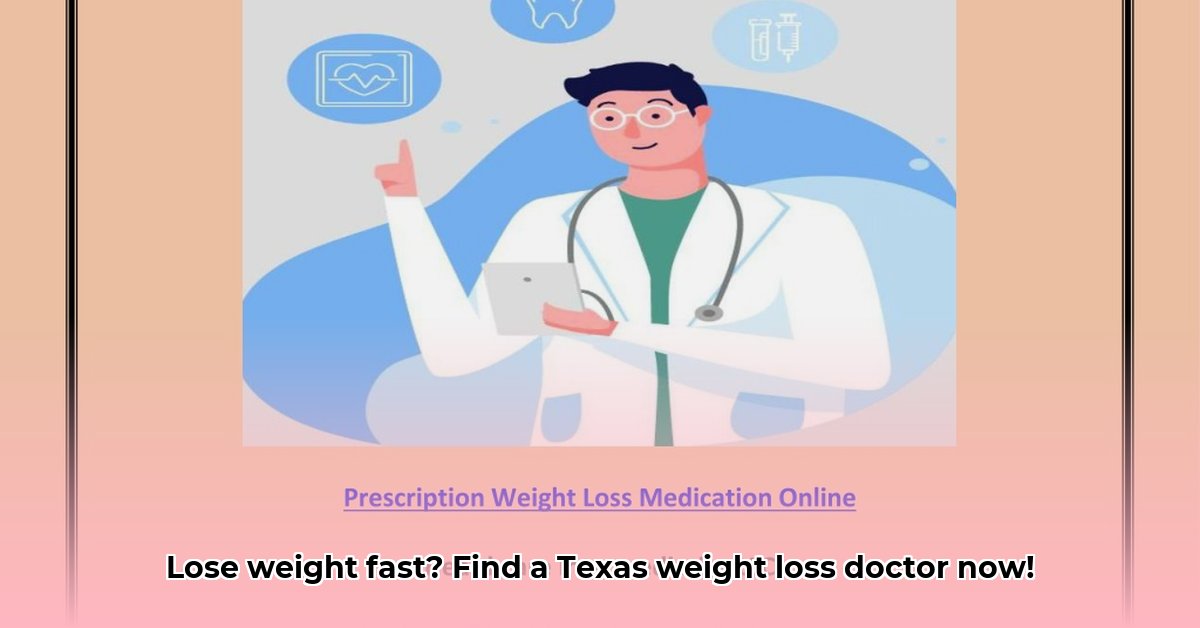
Understanding Prescription Weight Loss Medications in Texas
Losing weight can be challenging, but prescription medications can offer valuable support. Several options are available in Texas, each working differently to aid in weight management. Popular choices include semaglutide (brand names Wegovy and Ozempic), tirzepatide (Mounjaro), liraglutide (Saxenda), and phentermine. These medications affect appetite, metabolism, or both, helping you consume fewer calories and potentially burn more. Remember, these medications are most effective when combined with lifestyle changes like improved diet and exercise.
Each medication carries potential side effects, ranging from mild (nausea, constipation) to more serious (pancreatitis, gallbladder problems). Your doctor will discuss these thoroughly, helping you understand the risks and benefits based on your individual health history. Additionally, some individuals may not be suitable candidates for these medications due to pre-existing conditions. It's crucial to have an open discussion with your doctor about all options, including any potential contraindications. It’s also worth noting that compounded weight loss medications exist but often lack the extensive research supporting the efficacy of FDA-approved medications.
Did you know? Studies show that combining prescription weight-loss medication with lifestyle changes leads to significantly better results than lifestyle changes alone.
Finding a Qualified Provider in Texas
Finding the right doctor is essential for safe and effective weight loss. You have two main choices: in-person visits and telehealth.
In-person visits offer a comprehensive physical exam and personalized interaction. However, they require travel and scheduling appointments around your existing commitments.
Telehealth provides unparalleled convenience, especially for those in rural areas or with busy schedules. While generally less expensive upfront, a virtual consultation may not replace the thoroughness of a physical exam.
How to find a qualified doctor:
- Online Directories: Use search engines and online directories (e.g., those linked to providers like Klarity Health or RapidoRx) to search for weight-loss specialists in your area.
- Insurance Provider: Check your insurance provider's directory for in-network physicians specializing in weight management.
- Verify Credentials: Always verify a doctor’s license and board certifications with the Texas Medical Board to ensure they are qualified and licensed to practice in Texas.
Navigating Insurance and Costs
The cost of prescription weight-loss medication and doctor visits can vary widely. Insurance coverage is highly dependent on your specific plan. Some plans may fully cover medications, while others may require pre-authorization or offer only partial coverage, or none at all. Understanding your plan’s details before starting treatment is crucial.
Always ask your doctor about all potential costs upfront, including consultation fees, medication costs, and any other potential charges. Transparency will ensure you’re prepared for all associated expenses.
Telehealth vs. In-Person: Making the Right Choice
The best approach – telehealth or in-person – depends on your individual needs and preferences. Consider the following:
| Feature | Telehealth | In-Person |
|---|---|---|
| Convenience | High; ideal for busy schedules and remote areas | Lower; requires travel and scheduling appointments |
| Cost | Potentially lower, depending on insurance and location | Potentially higher, factoring in travel and time costs |
| Physical Exam | Limited; relies on patient-reported information | Comprehensive; includes a thorough physical examination |
| Personalization | Good, but potentially less detailed than in-person | Generally more personalized and detailed |
Your Prescription Weight Loss Journey: A Step-by-Step Guide
- Research: Research available medications and find doctors in your area. Verify credentials using the Texas Medical Board website.
- Initial Consultation: Schedule a consultation (in-person or telehealth) to discuss your health history, weight-loss goals, and any questions.
- Assessment: Your doctor will conduct a thorough health assessment to determine your suitability for medication.
- Medication Selection (if appropriate): If medication is recommended, your doctor will discuss options, explaining benefits, risks, and side effects.
- Ongoing Monitoring: Regular follow-up appointments are crucial for monitoring progress, addressing side effects, and adjusting treatment.
- Lifestyle Changes: Integrate healthy eating and regular exercise into your routine for optimal results.
Maintaining Long-Term Weight Management Success
Prescription weight-loss medications are tools, not magic bullets. Long-term success involves a holistic approach encompassing medication, healthy eating habits, regular exercise, and stress management. Consistent effort and support (from your doctor, family, or support groups) are invaluable for sustainable results. Remember that weight loss is a journey, not a race. Celebrate your successes, learn from setbacks, and maintain consistent communication with your healthcare provider.
Three Key Takeaways:
- Personalized Approach: Weight loss medication should be part of a personalized plan, tailored to your needs and health status.
- Lifestyle Integration: The most effective weight loss strategies combine medication with consistent lifestyle changes.
- Ongoing Support: Maintaining long-term weight management requires ongoing support from healthcare professionals and support networks.